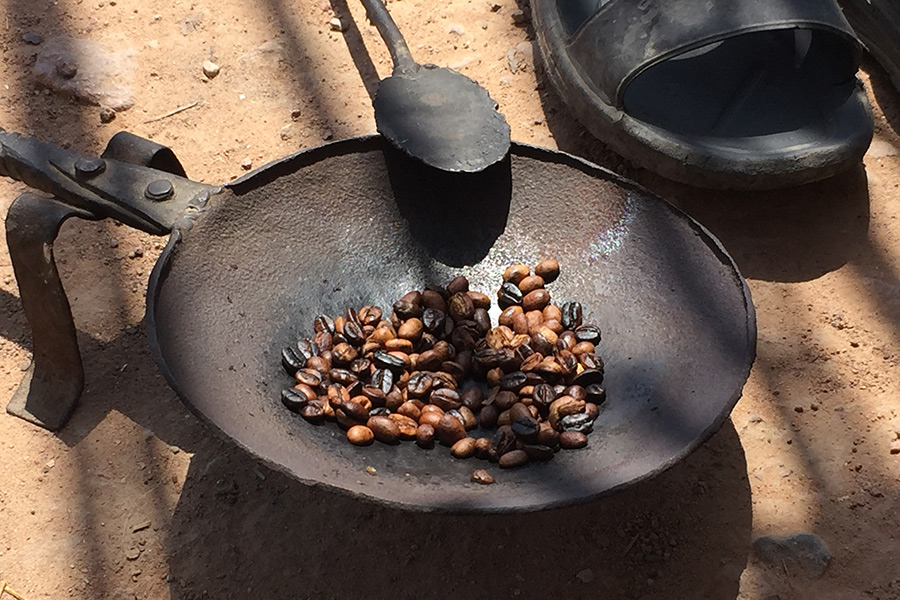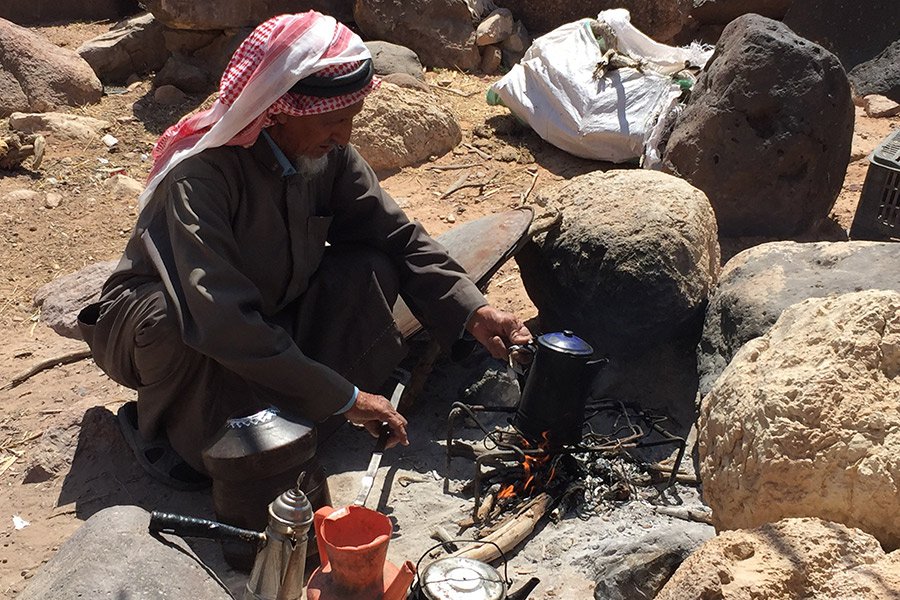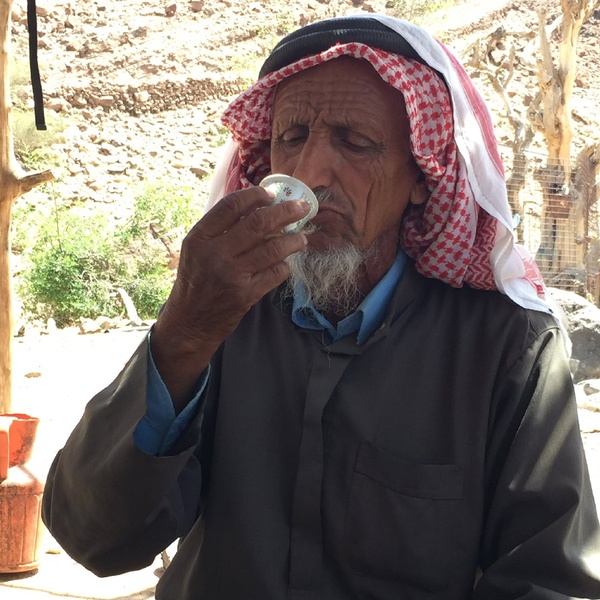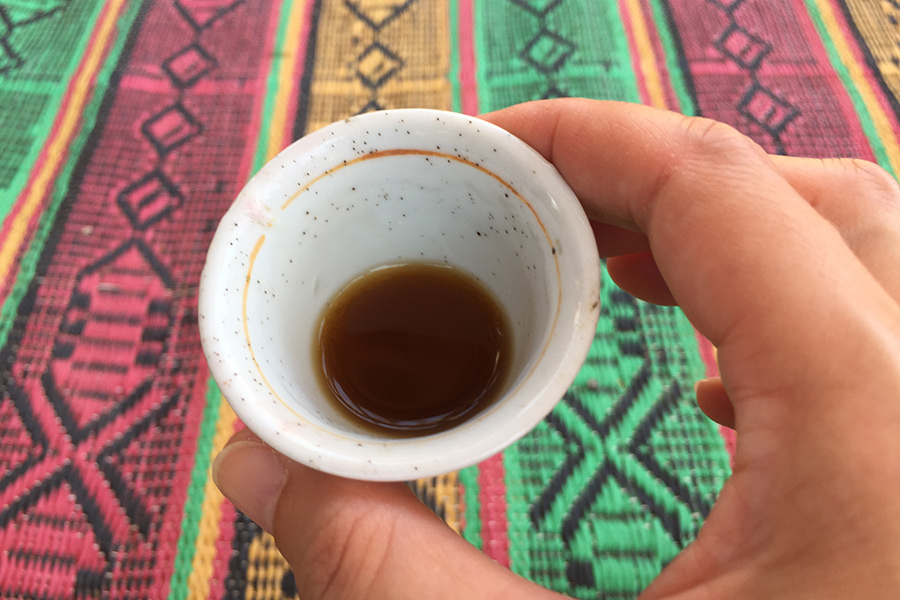In Arabic culture, guests are offered a second cup of coffee. The first cup is called the "first cup."al heifThe first cup is tasted by the host so that the guests know the coffee is good. The second cup poured is called...al keifGuests will use their right hand to hold the cup. Absolutely no left hand. And even if you really like this coffee, you're only allowed a maximum of 3 cups.
In Jordan, people take coffee very seriously. The author of this article is from Croatia, where coffee is a way of life. Therefore, experiencing coffee in a place even more seriously taken than his own country was a fascinating cultural adventure for him. Here, drinking Arabic coffee with a sprinkle of fresh cardamom is a stylized ritual with fixed rules. It also has its own music and poetry.
At midday in Dana Biosphere – Jordan's largest nature reserve – in Abu Mohammed's distinctive Arabian tent, decorated with goat hair, Suleiman cleared his throat loudly as if to announce the arrival of a group. This is part of the guesthouse's activities, connecting with the surrounding Arab community to showcase their culture and traditions to visitors.
Abu Mohammed greeted his new friends with a subtle smile and a slender build. Wearing a dishdasha (a traditional long-sleeved robe for Arab men) and a red and white checkered turban, he began his work. A fire blazed and wood crackled, a white broom and acacia wood used for roasting coffee beans. His 10-year-old nephew stood beside him, his eyes filled with curiosity and eagerness to learn. The tradition of brewing coffee exclusively by men has lasted for hundreds of years.

Then the magic happened. Abu Mohammed poured roasted coffee beans into a mortar and pestle, grinding them down in a steady, mesmerizing rhythm. Everyone fell silent, as if captivated by this natural music.

The Mehbash is a traditional coffee grinder. It's used rhythmically by Arab men as if they were playing with a familiar, enjoyable toy. "It's the sound of hospitality," Suleiman explains. "When you hear it, you know the house is welcoming distinguished guests."
“We enjoy writing poetry. Our lives are very natural, stress-free, and we always maintain a positive state of mind. We often write about coffee, from the color of the beans to the brewing tools, the cups, and even the fire when we roast the coffee,” Suleiman added.

Mohammed filled a pot with roasted coffee beans, added green cardamom seeds, and continued to boil. When the coffee was ready, he used al heif to taste the first cup of coffee according to ritual. The cups of coffee were then distributed equally to all the guests in the tent. However, there was only a small amount of coffee in each cup.

Suleiman said, "There shouldn't be too much coffee in the cup, but it has to be hot, extremely hot."
After finishing your glass, if you don't want a second, you shake it, twirling your wrist a few times to let everyone know you're finished. If you want a second glass, you return it to the host without shaking it. After three glasses, you shake the glass, indicating your refusal of a fourth, which is forbidden.
Ngoc Anh (According to Fathom)

 VI
VI EN
EN

































